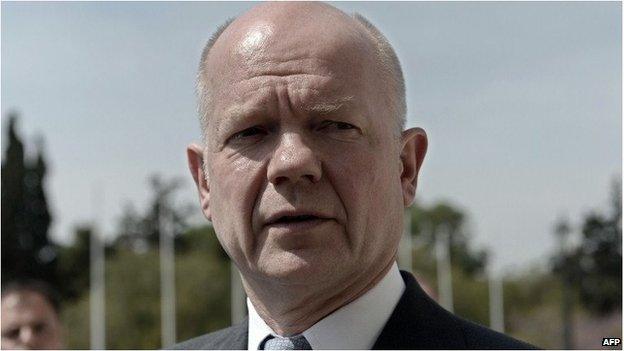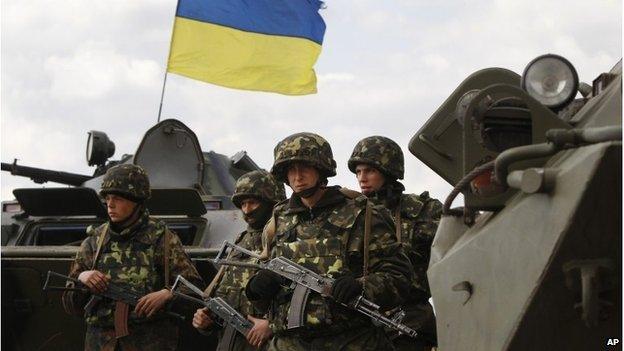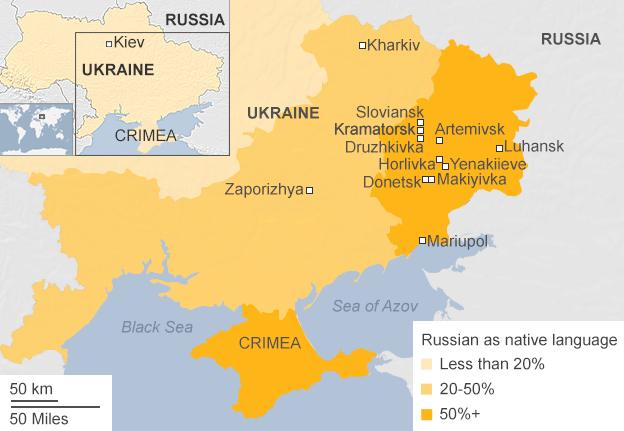Ukraine crisis: Hague warns Russia on long-term future
- Published

William Hague said Russia must choose whether it was open to 'diplomacy and de-escalation'
There will be serious long-term consequences if Russia continues to destabilise Ukraine, Foreign Secretary William Hague has said.
Mr Hague warned that Moscow could face international isolation and lasting economic damage, through a reduction in foreign investment.
The foreign secretary was speaking at the Lord Mayor's Easter banquet in the City of London.
Mr Hague added that it was a "crucial moment" in the Ukraine crisis.
'Lawless acts'
In his annual Mansion House speech, he said: "In recent days Russia has deliberately pushed Ukraine to the brink, and created a still greater risk of violent confrontation.
"We call on Russia to stop these actions and to condemn the lawless acts in eastern Ukraine.
"Russia must choose whether it is open to diplomacy and de-escalation, and if it decides otherwise, we must be ready for a different state of relations with Russia in the next 10 years than in the last 20.
"Ukraine can be a bridge between East and West and be able to have good relations with Russia.

Ukraine has announced the start of an "anti-terrorist operation" against pro-Russian separatists
"But that does not entitle Russia to send in its armed groups, thinly disguised, to spearhead the occupation of buildings in multiple Ukrainian cities, to try permanently to destabilise the country and dictate the terms of its constitution.
"My message to Moscow is that if anyone thinks they can do these things without serious long-term consequences they are making a grave miscalculation."
Further sanctions
Earlier, Mr Hague told the BBC that the UK was ready to make economic "sacrifices" to help Ukraine.
He said further sanctions were being planned, but there was no "fixed red line" to decide how far Moscow needed to go before they were imposed.
Mr Hague said he thought Russia was encouraging separatist groups in eastern Ukraine. Russian President Vladimir Putin has rejected the accusation.
Ukraine's acting President Olexander Turchynov has announced the start of an "anti-terrorist operation" against pro-Russian separatists.
Mr Putin said the escalation of the conflict had put Ukraine "on the verge of civil war".
Tension has been steadily rising since Russia annexed the Crimean peninsula, formerly part of Ukraine, last month.
The move, condemned as illegal by Kiev and the West, followed the ousting of Ukraine's pro-Moscow President Viktor Yanukovych in February.
The European Union has imposed sanctions, including travel bans and asset freezes, on some individual Russian and Ukrainian officials.
But meetings have been taking place in recent days, aimed at setting out wider economic punishments if the situation worsens.

The map shows towns where pro-Russian activists have seized buildings